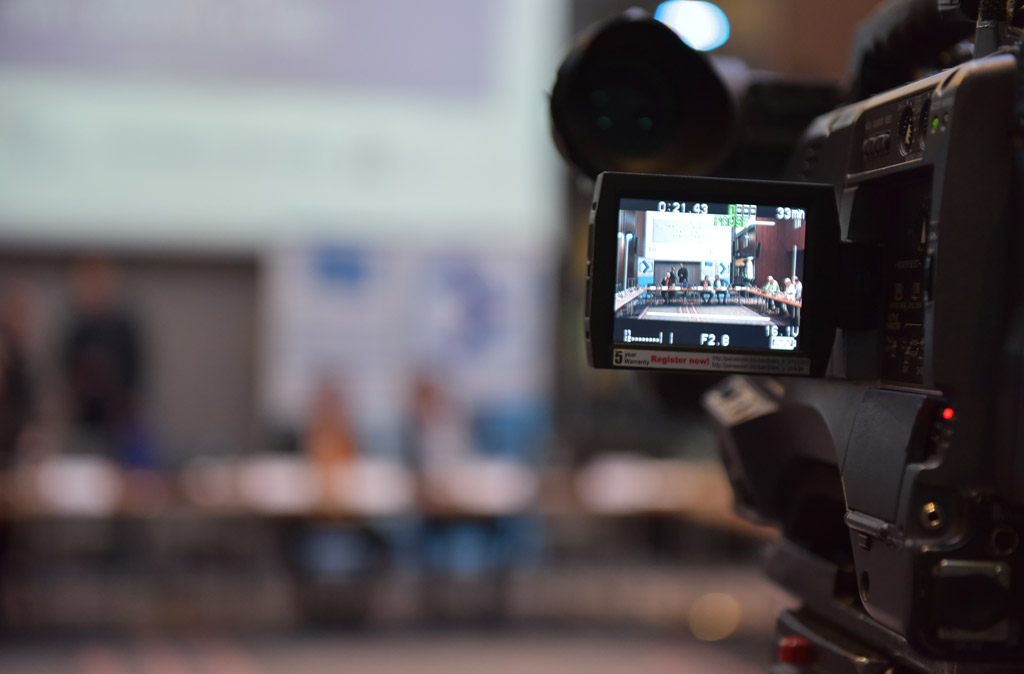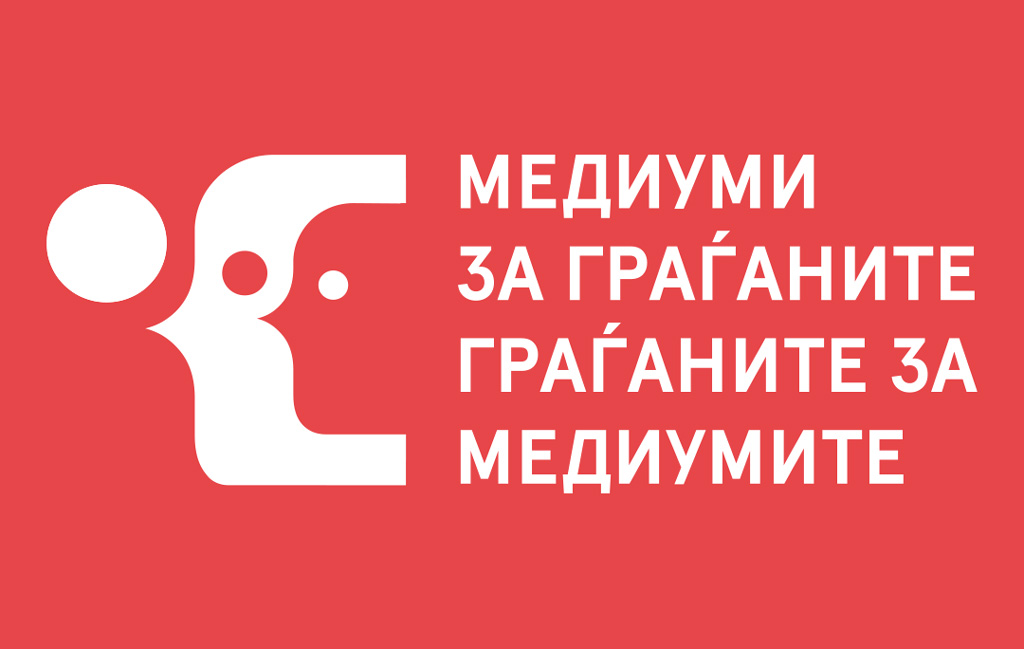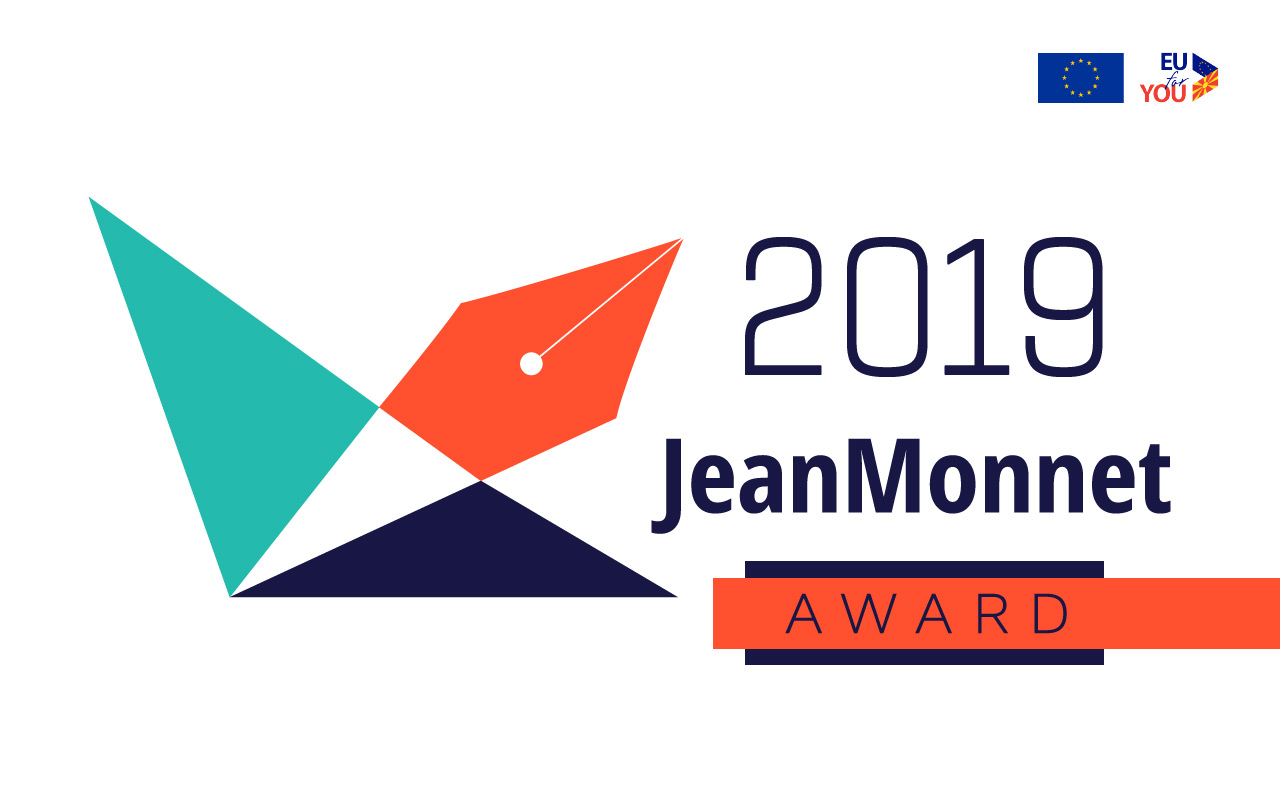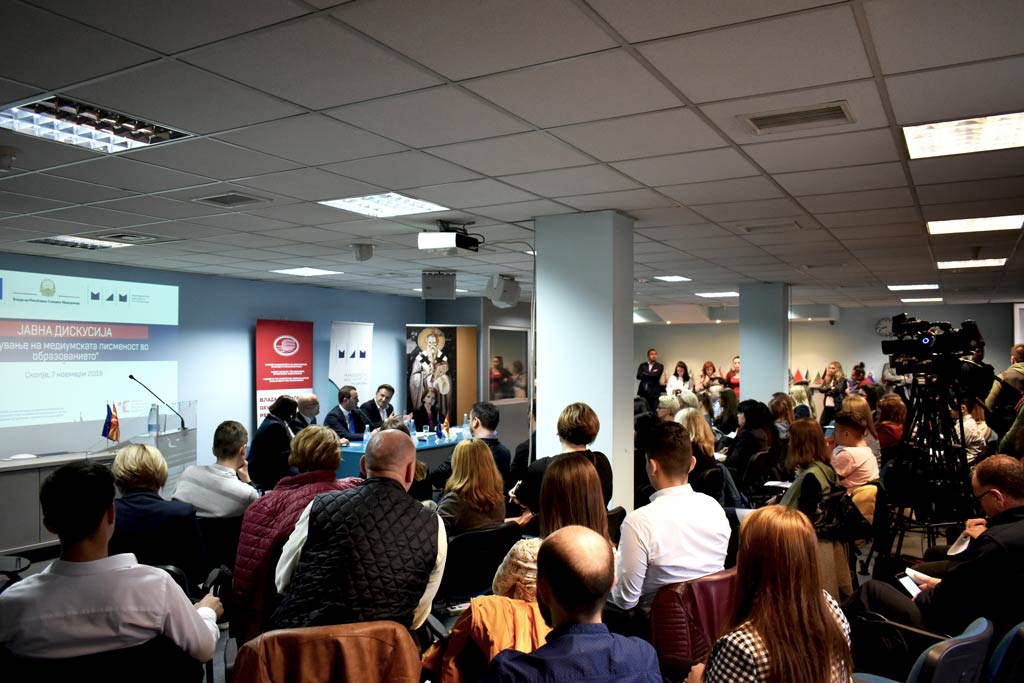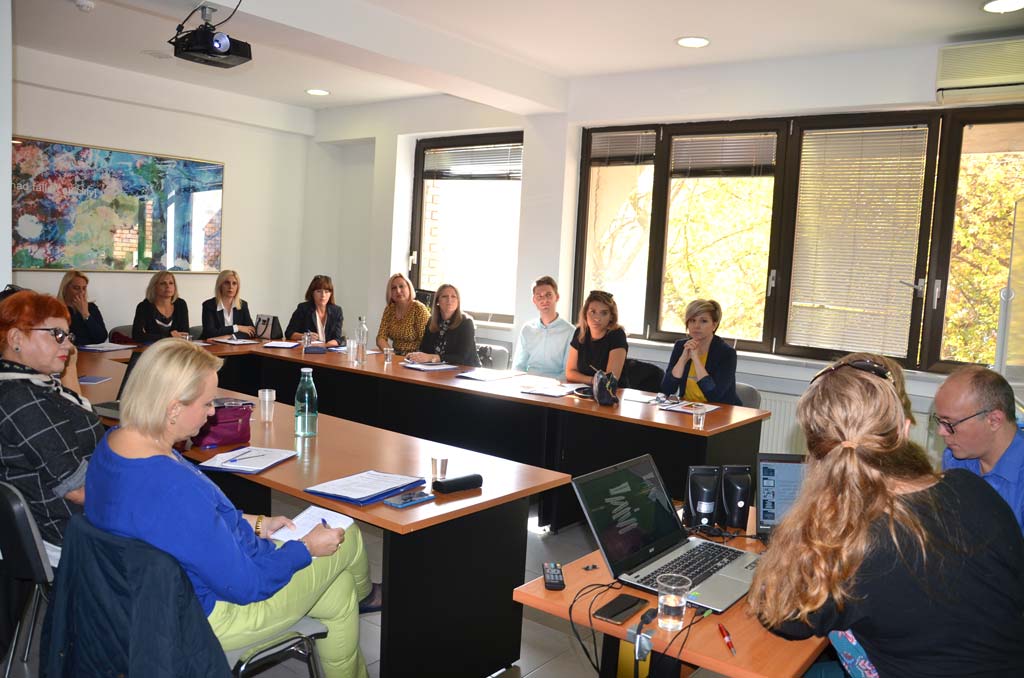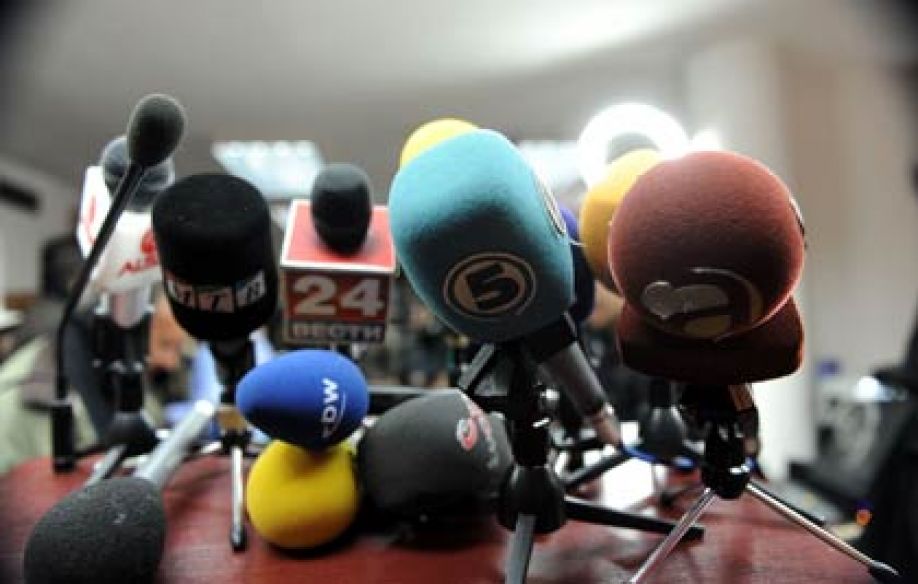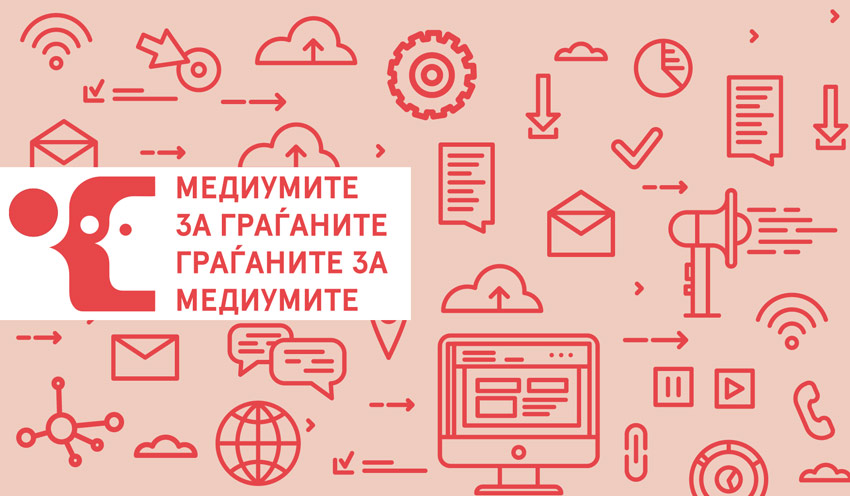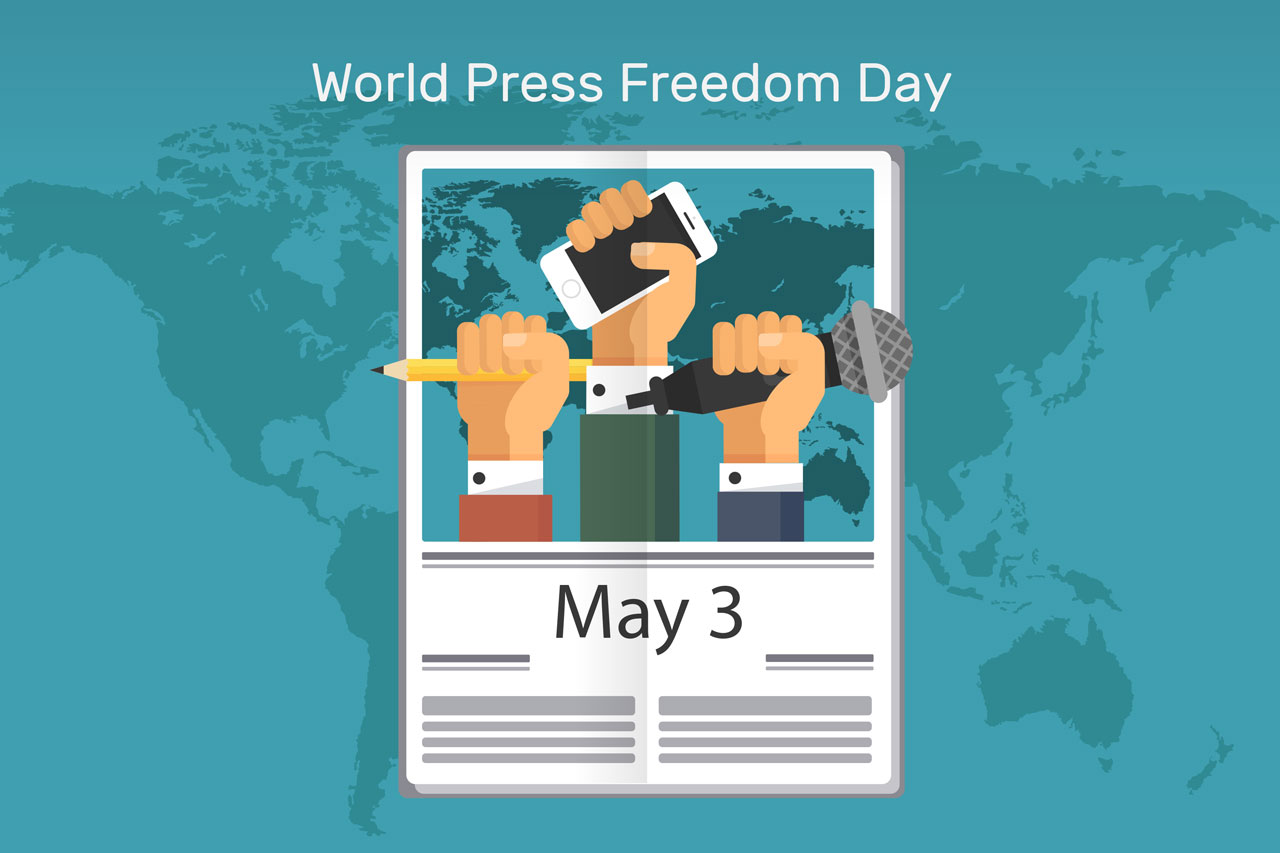Promoting media literacy and accurate information in North Macedonia
Deadline for submission: 8 June 2020
Duration of each project: Up to 6 months. Projects need to be completed by the end of January 2021.
Size of individual grants: 3.000 GBP (paid in local currency) plus requested input and assistance from consultants who are experts in content creation, if needed
Total number of grants that will be awarded under this call: Up to two
General information
Albany Associates (www.albanyassociates.com), Mediacentar Sarajevo (https://media.ba), and Macedonian Institute for Media along with regional media development organisations, are implementing a project called “Promoting Media Information Literacy and Strengthening Independent Media in the Western Balkans”. The project’s primary goals are to build the capacity of media professionals and journalism students in verification, fact-checking, content production and other reporting competencies; and to enhance public service broadcasters' understanding of media and information literacy (MIL) and to improve their ability to deliver MIL campaigns to the public. The project is being implemented in Albania, Bosnia and Herzegovina, Kosovo, Montenegro, North Macedonia and Serbia.The project is being implemented in Albania, Bosnia and Herzegovina, Kosovo, R.N. Macedonia, Montenegro and Serbia. It is funded by the Foreign and Commonwealth Office. Under this call published by Macedonian Institute for Media, only media outlets registered in North Macedonia are eligible to apply. A maximum of two awards will be made.
Objectives of the call
In order to support quality journalism and improve media literacy among audiences in the region, Albany Associates and Macedonian Institute for Media are seeking applications for content production grants, with the following specific objectives (applicants can choose between the two, or combine them):
1. Providing audiences in North Macedonia access to high quality, innovative media content that will help them to better understand the role of media and the importance of professional and independent journalism.
2. Helping audiences safely and responsibly navigate information concerning the ongoing COVID-19 pandemic, thus increasing critical thinking and reducing the harmful effects of mis/disinformation around the topic.
Who is eligible to apply?
Media outlets (print, TV, radio, online media) satisfying following criteria:
Registered in North Macedonia, proven by registration document
Have at least two years of experience operating as a media outlet in North Macedonia, proven by registration document
Have the ability to reach audiences, proven by data demonstrating the outlet’s web site statistics, circulation, reach, etc.
Have the ability to produce media content, proven by samples that have been published/aired/posted
Applications not meeting the above criteria will not be considered.
Each media outlet can only submit one application.
Co-productions are also allowed, with one applicant stated as the lead, and others as co-applicant(s). In the case of co-production, all eligibility criteria apply to both the lead applicant and co-applicant(s).
Please note that this project tries to ensure that support initiatives such as this are not duplicated and overly concentrated within any one media outlet. As such, media outlets receiving support under other Foreign and Commonwealth Office - funded efforts may ultimately not be selected to receive funds under this call.
What content forms and topics will be supported?
Although media outlets can propose content on any medium, preference will be given to multimedia content with the potential to be further promoted and distributed via social media platforms.
Proposed topics should stem from the specific objectives of the call identified above and may include, but are not limited to, the following examples:
The role of media and journalism in safeguarding freedom of speech;
Criteria to assess quality and credible journalism, critically assessing media content both online and offline;
Online safety and data protection;
Transparency of media financing and media ownership;
Recognising inaccurate information in the media;
Providing accurate information to counter misleading or false information concerning the ongoing COVID-19 pandemic;
Helping audiences recognise trustworthy sources of information on the COVID-19 pandemic over misleading and false information; and/or
Providing fact-based reporting on such topics as challenges to local economies, respect for human rights, marginalised and/or vulnerable groups, education or media freedom in the light of the COVID -19 pandemic.
Eligibility of costs
The following costs related to content production will be considered eligible:
Salaries and accompanying fringe benefits
Production-related costs such as travel, equipment and similar expenses.
How to apply?
Application form and budget template
Applications must be submitted in English, using both the application form and budget template.
Supporting documents
Each application must be accompanied by:
Scanned copy of the organisation's registration document (for lead applicant and any co-applicants).
Samples of previous production demonstrating ability to produce media content, preferably with links to previously published content (for lead applicant and any co-applicants).
Completed budget form that can be downloaded here.
When and how to send the application
All applications must be received by 8 June 2020. Applications received after the deadline will not be considered.
Applications must be submitted via email to mim@mim.org.mk with “Call for Content Production Grants” in the subject line.
Questions
Any questions about this call should be submitted by email on or before 1 June 2020 to mim@mim.org.mk with “Call for Content Production Grants” in the subject line.
Assessment and selection of applications
All applications will be assessed by a selection committee assembled from local and regional media development organisations based on the following criteria:
Relevance of the proposed content against the objective of the call (maximum 20 points)
Quality of the proposed content, approach to the proposed topic, originality of the proposal, (maximum 40 points)
Estimated project reach, proposed content distribution and promotion plan (maximum 10 points)
Capacity of the organisation to implement the proposed project, applicant’s technical abilities and experience in content production, commitment of the applicant to professional journalism, experience of the proposed production team (maximum 20 points)
Efficiency of proposed costs, value for money (maximum 10 points)
Content Production Grant App92.39 KB
Content Grant - budget application form23.47 KB
News
Prominent and respected journalists, editors and media experts convey messages about the role of the journalists and the challenges they face with, on investigative journalism, transparency and financing of media, the role of the public broadcasting service, in order to remind the audiences what professional journalism is and how to recognize it in the vast sea of information that are finding its ways to our screens.
The campaign was prepared by the Macedonian Institute for Media and will be run during January and February 2020. The purpose of the campaign is to encourage the citizens to demand professional and ethical journalism that serves the public interest.
This initiative is part of the regional campaign for increasing awareness about the importance of the free and professional media. It is prepared in the frames of the project “Citizens for Media – Media for Citizens” that is being implemented in Albania, Bosnia and Herzegovina, Montenegro, Macedonia and Serbia with financial support of the European Union.
The Delegation of the European Union and the Macedonian Institute for Media announce the 17th edition of the Jean Monnet Media Award for best achievements in covering issues related to the theme of "Building a country we want to live in".
The Jean Monnet Award will be given in 3 competition categories:
Best Journalistic News Item (for news items published in print media and/or web);
Best Reporters’ Photography (for photographs published in print media and/or web);
Best Amateurs’ Photography.
1. Best Journalistic News Item Competition
The participating works in this category are national authors’ news items on "Building a country we want to live in" subject, published in national newspapers, magazines and websites in the period between 25 November 2018 and 26 November 2019.
The news item/s should fulfil the following criteria:
The news item is on the theme: "Building a country we want to live in";
The news item is published in the period between 25 November 2018 and 26 November 2019;
The news item is signed by the author’s real name.
Copies of the news item in digital PDF format, together with a written and signed statement by the author, guaranteeing that s/he is the author of the item need to be sent at the following e-mail address: JMcompetition@euhouse.mk, by 27 November 2019, at 18:00 the latest. Applicants will receive an e-mail receipt confirmation by the Europe House.
Award: statuette, certificate and a voucher for a technical equipment in an amount of EUR 1,000.
Best Reporters’ Photography Competition (for photographs published in print media and/or web)
The competition is open for all professional photo-reporters and photographers from the country, who can submit up to 3 photographs on a "Building a country we want to live in" subject, published in the period between 25 November 2018 and 26 November 2019.
The photographs eligible for the competition must fulfil the following criteria:
The theme of the photography is related to the theme: "Building a country we want to live in";
The photography is published in the period between 25 November 2018 and 26 November 2019;
Photographs used for commercial purposes are not eligible for the competition.
Copies of the photography/photographs in digital format (size of each photography 3-5 MB), together with a written and signed statement by the author, guaranteeing that s/he is the author of the photography as well as that he/she is professional photographer, need to be sent, to the following e-mail JMcompetition@euhouse.mk , latest by 27 November 2019, at 18:00. The applicants will receive an e-mail receipt confirmation by the Europe House.
Award: statuette, certificate and a voucher for a technical equipment in an amount of EUR 1,000.
Best Amateurs’ Photography Competition
The competition is open for all photographers from the country, who can submit one photograph on a "We all decide if we have clean environment" subject. The photographs competing in this category may, but do not need to be previously published.
The photographs eligible for the competition must fulfil the following criteria:
The theme of the photography is related to "We all decide if we have clean environment" subject;
Photographs used for commercial purposes are not eligible for the competition.
The contestants of this category should submit their applications on the following e-mail address JMcompetition@euhouse.mk, latest by 27 November 2019, at 18:00. Each competitor can submit 1 (one) photograph (size of the photography 3-5 MB) and should guarantee that s/he is the author of the photography by sending a signed statement to the same e-mail address. The applicants will receive an e-mail receipt confirmation by the Europe House.
Award: Certificate and voucher for a technical equipment in an amount of EUR 500.
Note: This activity is organized in partnership with the Macedonian Institute for Media. The Delegation of the European Union shall not be held responsible for any legal liability arising from any disputes over the copy or author rights, which shall be solely the responsibility of the applicant. The Delegation of the European Union reserves the right to cancel the qualification of the disputed entry and recover any award and prize granted. The activity can in no way be taken to reflect the views of the European Union.
Other information
The jury will consist of seven members – a representative of the EU Delegation, a representative of the Secretariat for European Affairs, the professional photo-reporter winner of the previous year’s Jean Monnet Award, the journalist winner of the previous year’s Jean Monnet Award, a representative of the Independent Union of Journalists and Media Workers, a representative of the Macedonian Institute for Media, and prominent journalist from the region as an Honorary President of the Jury.
The awarding ceremony will be held on 16 December 2019.
Media literacy needs to be included in the educational process from the earliest age. In that purpose the most appropriate model that will allow effective and easy integration into the education needs to be identified. This is the conclusion from the public discussion "Introduction of media literacy in the education” which was organized by the Government of Republic of North Macedonia and the Macedonian Institute for Media, in the frames of UNESCO’s Media Literacy Days. The purpose of the discussion was to allow the authorities to hear the opinions and the thoughts of the teachers, professors and students regarding introduction of media literacy in education.
Stating that the citizens are “not sufficiently informed or cannot precisely evaluate what is correct and quality information, and what is a lie, untrue information and speculations”, the minister of communications, accountability and transparency, Robert Popovski, expressed his concerns that the country is on the last place in Europe considering the skills of its citizens for evaluation of truthfulness of information.
“The information are not sufficiently checked, there is no interest or willingness for that, the arguments, facts and everything that “bombards” us every day are not well recognized, which is why we must find a way to help the citizens to detect and to better recognize this occurrences”, said Popovski, emphasizing the importance of media literacy in this context.
The Minister of education and science Arber Ademi recommended that a best model for integration of media literacy in the national educational curricula should be identified, through inclusive debate, consulting the media and the experts, the analysis on national level and the experience from abroad.
It is important to teach the children from earliest age to make distinction between fake and true information, since this approach affects the attitudes and thoughts of every single person for a certain question”, Ademi adds.
Media literacy should become part of the educational system and the EU supports all activities of the Government in this direction, said Ferruccio Bogo, political adviser from the EU Delegation. “These activities should contribute for active youth, who can critically consume information, instead of just being consumers. In order to have better results, this process also asks for an appropriate training of the teachers”, Bogo said.
The teachers and the professors consider that it is very important to identify the most appropriate model for introduction of media literacy in education that on one side will not overburden the education process additionally, but on the other, will help the students to effectively develop skills for critical thinking and solving problems. They stressed that training of teachers is very important, and the new Law for teachers which foresees professional development will support them in this complex process. According to the teachers there is a need of good educational policies which will result with an educational system that will function effectively in the practice. The students appealed for more space for expressing and thinking, instead of just memorizing content, as well as for high quality text books and well designed classes that will contribute to more effective and interesting studying process.
The event was cofinanced by the European Union in the frames of the regional project “Media for citizens - Citizens for media”.
The photo gallery from the event is available here.
Journalists and editors from various program departments in MRTV participated at the one-day workshop for strengthening the role of the Public Service Broadcaster in promoting and improving the concept for media literacy in the public sphere in the country.
The goal of the workshop was to create unanimous understanding of media literacy concept within the Public Service Broadcaster, and to emphasise the importance of the Public Service Broadcaster as one of the main actors in promotion of media literacy.
The workshop was led by Martina Chapman from Ireland, international expert specialized for politics, strategies, researches and projects in the sphere of media literacy. Through practical examples and presentations of experiences from abroad, she helped the participants to define initiatives and ideas that could further strengthen the role of MRT in promoting media literacy. Furthermore, she explained the importance of media literacy in strengthening the interaction with the audience and increasing the trust in the Public Service Broadcaster .
Macedonian Institute for Media organized the workshop within the project “Promoting Media Information Literacy and strengthening independent media in the Western Balkans”, which is implemented by Albany Associates from London in partnership with regional media development organizations in Western Balkan countries. The project is funded by the British Government.
Promoting media literacy and accurate information among youth in R. N. Macedonia
Deadline for submission: 28 October 2019Duration of each project: 31 December 2019Size of individual grants: 3.000 GBPTotal number of grants that will be awarded under this call: Up to 2
General informationAlbany Associates (www.albanyassociates.com) and Macedonian Institute for Media, along with regional media development organisations, are implementing a project called “Promoting Media Information Literacy and Strengthening Independent Media in the Western Balkans”. The project’s primary goals are to build the capacity of media professionals and journalism students in verification, fact-checking, content production and other reporting competencies; and to enhance public service broadcasters' understanding of media and information literacy (MIL) and to improve their ability to deliver MIL campaigns to the public. The project is being implemented in Albania, Bosnia and Herzegovina, Kosovo, R.N. Macedonia, Montenegro and Serbia. It is funded by the British Government.
Although we anticipate similar calls in all of these countries eventually, only media outlets registered in R.N. Macedonia are eligible for this call.
Objectives of the callAvailable research indicates that young people in R.N. Macedonia lack basic media literacy skills, lack knowledge on standards of professional journalism and are unaware of the responsibilities and role of media in democratic societies. Furthermore, they often lack the skills needed to verify information and protect themselves from misleading or manipulative content and thus would benefit from education in MIL.
Research on attitudes of journalists and discussions with youth in the region also show that both those who produce content and those who consume media believe there is often inaccurate information disseminated on issues of general interest such as health and the environment.
In order to support quality journalism and improve media literacy among audiences in the region, Albany Associates and Macedonian Institute for Media are seeking applications for content production grants, with the following specific objectives (applicants can choose between the two, or combine them):
Providing audiences in R.N. Macedonia, in particularly those under 35, access to high quality, innovative media content that will help them to better understand the role of media and the importance of professional and independent journalism.
Providing high quality, innovative media content that will provide audiences with accurate information to counter misleading or false information in the areas of health, protecting the environment, local governance or another area of public interest.
Who is eligible to apply?Media outlets (print, TV, radio, online media) satisfying following criteria:
Registered in R. N. Macedonia, proven by registration document
Have at least two years of experience operating as a media outlet in R.N. Macedonia, proven by registration document
Have the ability to reach audiences, proven by data demonstrating the outlet’s web site statistics, circulation, reach, etc.
Have the ability to produce media content, proven by samples that have been published/aired/posted
Applications not meeting the above criteria will not be considered.
Each media outlet can only submit one application.
Co-productions are also allowed, with one applicant stated as the lead, and others as co-applicant(s). In the case of co-production, all eligibility criteria apply to both the lead applicant and co-applicant(s).
What content forms and topics will be supported?Although media outlets can propose content on any medium, preference will be given to multimedia content with the potential to be further promoted and distributed via social media platforms.
Proposed topics should stem from the specific objectives of the call identified above and may include, but are not limited to, the following examples:
The role of media and journalism in safeguarding freedom of speech;
Criteria to assess the quality and credible journalism; searching, critically assessing media content both online and offline;
Online safety and data protection;
Recognizing inaccurate information in the media;
Transparency of media financing and media ownership; or
Providing accurate information to counter misleading or false information in the areas of health, gender, protecting the environment, local governance or another area of public interest.
Eligibility of costsThe following costs related to content production will be considered eligible:
Salaries and accompanying fringe benefits
Production-related costs such as travel, equipment and similar expenses.
How to apply?
Application form and budget template
Applications must be submitted in English, using both the:
application form (download here)
budget template (download here)
Supporting documentsEach application must be accompanied by:
Scanned copy of the organisation's registration document (for lead applicant and any co-applicants).
Samples of previous production demonstrating ability to produce media content, preferably with links to previously published content (for lead applicant and any co-applicants).
Completed budget form
When and how to send the applicationAll applications must be received by 28 October 2019. Applications received after the deadline will not be considered. Applications must be submitted via email to mim@mim.org.mk with “Call for Content Production Grants” in the subject line.
QuestionsAny questions about this call should be submitted by email on or before 18 October 2019 to mim@mim.org.mk with “Call for Content Production Grants” in the subject line.
Assessment and selection of applicationsAll applications will be assessed by a selection committee assembled from local and regional media development organisations based on the following criteria:
Relevance of the proposed content against the objective of the call (maximum 20 points)
Quality of the proposed content, approach to the proposed topic, originality of the proposal, (maximum 40 points)
Proposed content distribution and promotion plan (maximum 10 points)
Capacity of the organisation to implement the proposed project, applicant’s technical abilities and experience in content production, commitment of the applicant to professional journalism, experience of the proposed production team (maximum 20 points)
Efficiency of proposed costs, value for money (maximum 10 points)
The Association of Journalist of Macedonia (AJM), the Council of Media Ethics of Macedonia (CMEM), the Independent Union of Journalists and Media Workers (SSNM) and the Macedonian Institute for Media are seriously concerned about the unreasonable delay in the procedure for appointment of members in the Council of the Agency of Audio and Audiovisual Media Services and the Program Council of the PSB Macedonian Radio and Television.
We appeal to the President and the members of the Committee for Selection and Appointments in the Assembly of the Republic of North Macedonia to start the process of selection and appointment of members of these bodies. Any further interference or delay of the procedure will seriously affect the implementation of the media reform process in the country.
The long-awaited systemic reforms in the media sphere, which should enable the media to function independently and professionally, depends on the selection of the members in these bodies. We would like to remind that media reforms are crucial for the EU integration processes, which is also noted in the latest European Commission: "the country should make an effort to improve the independence and professional standards of the public broadcasting service and its financial independence". However, it is expected that the selection of members of both bodies will be transparent and fair, based on candidates' expertise.
The Competition was announced in January 2019, and the final decision about the selection of the members of the both bodies should have been completed right after the Presidential elections.
We would like to stress that the Government, the Parliament and all political actors have the responsibility to seriously approach this process and put themselves above the interests of the parties in order to prevent further damage in the media sector.
The Macedonian Institute for Media, in the past period as a part of the regional project "Media for Citizens - Citizens for the Media", announced a call for grants for civil society organizations and conducted a procedure for selecting the best project proposals.
The Council of Media Ethics of Macedonia (CMEM), the Association of Journalists of Macedonia (AJM), the Independent Union of Journalists and Media Workers (SSNM) and the Macedonian Institute for Media (MIM), on the occasion of celebration of the World Press Freedom Day, May 3d, would like to recall to the need for serious engagement of all relevant actors in undertaking the major reform steps in the media sector in the country.
In the past period some efforts were made, resulting with improvement of the working environment for the journalists and media workers, which in turn, improved the country’s image in the international media freedom reports. For illustration, our country is ranked 95th according to the latest World Press Freedom Index of “Reporters Without Borders”, going up 14 places in comparison to 2018’ report.
However, we would like to remind that the key systemic changes in the media sector are not yet completed, such as the reforms in the public broadcasting service and the media regulator. In addition, commercial media continue to face strong challenges due to the small and limited media and advertising market, which in turn affects the quality of the media content. At the same time, we appeal to the Government and the institutions of the system, when bringing decisions considering improvement of the situation in journalism and media content to coordinate it with the professional media and journalistic community in the country.
In the first half of 2019 more incidents were noted where the rights of the journalists, cameramen and other media workers were violated, to what we have been constantly pointing out. We appeal to the Public Prosecution Office and the courts processes and finalize the cases in which the rights of journalists were violated, as well as the cases that include hate speech, in order to overcome the long time existing impunity practice and to prevent injustice towards media community.
We would like to remind to the need of taking urgent measures regarding labor rights of the journalists and media workers, taking into consideration that half of them are without employment contracts, especially in the online media sphere. In that direction, we expect the institutions to sanction the constant breaches of the Labor Relations Law and to ensure climate that will encourage social dialogue and resolution of the issues concerning labor conditions.
The four organizations will continue to advocate for strong promotion of the media self-regulation as a mechanism for enhancing the professionalism, ethics and independence in the media, prevention of influence of different centers of power and mechanism that allows the public to receive quality and independent information.
Prior to the second round of voting for the President in the country, the four organizations would like to remind the media to their duties to report professionally and according to the principles stated in the CMEM’ Charter on Ethical Reporting during Elections:
- truthfulness and objectivity,
- the principle of balance,
- clear distinction between information and comments,
- fairness and impartiality,
- professional solidarity among media,
- editorial independence and professional integrity,
- respect and tolerance and
- freedom and responsibility.
We will continue the intensive cooperation with our respected international partners, European Federation of Journalists (EFJ) and International Federation of Journalists (IFJ). We stand together in support of the campaign of the International Federation of Journalists (IFJ) - “The role of media in elections and democracy”, whose purpose is to enable media access to free and diverse information, independent from the influence of the centers of political and economic power.
Council of Media Ethics of Macedonia (CMEM)Association of Journalists of Macedonia (AJM)Independent Union of Journalists and Media Workers (SSNM)Macedonian Institute for Media (MIM)
Skopje, May 3, 2019

